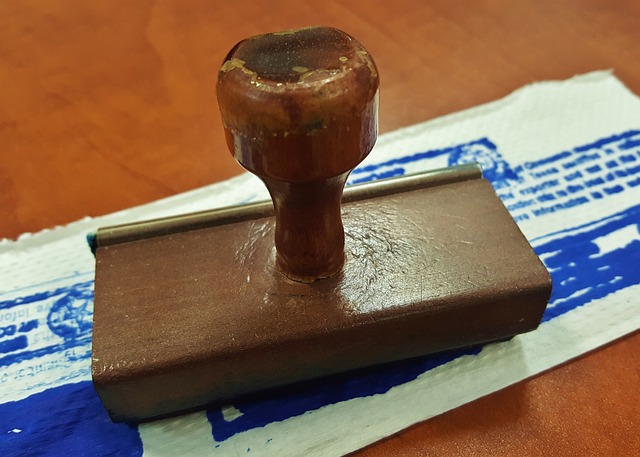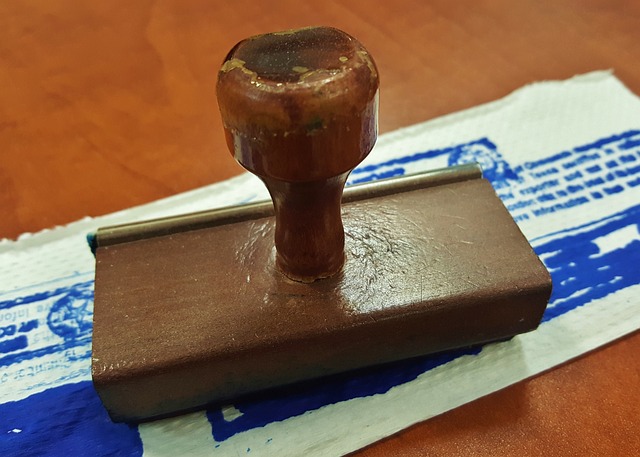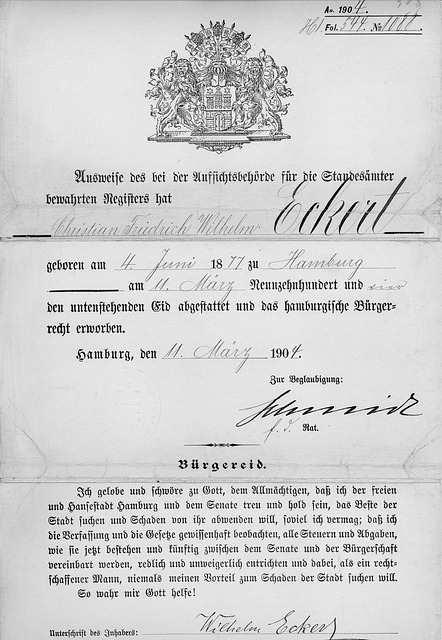In the UK, notarised translation services UK are essential for accurately converting foreign language documents into English for legal purposes. These services ensure both linguistic precision and verification of the translation's authenticity, which is a prerequisite for UK authorities to accept them in immigration, trade, and visa contexts. The process involves a Notary Public confirming the translator's credentials and the accuracy of the translation against the original document. This guarantees that all notarised translations comply with UK legal standards. Individuals and businesses across various sectors can confidently present their documents within the UK legal system, knowing they have been meticulously scrutinized and certified for authenticity by professional notarised translation services UK-based. These services are indispensable for ensuring that translated documents are legally valid and accepted by UK authorities, facilitating international transactions and legal proceedings in the country's multicultural environment.
Navigating legal paperwork, particularly when it involves international processes, can be a complex endeavour. In the UK, where legal formalities are paramount, notarised translations of documents play a crucial role in ensuring that official papers meet the necessary standards for use by authorities. This article delves into the significance of notarised translation services UK, elucidating the intricacies involved in this process. From understanding the importance of document authentication to identifying reliable service providers, we explore every aspect. Whether it’s certifying personal documents, corporate records, or legal files, this guide will equip you with the knowledge to navigate the UK’s bureaucratic waters confidently and compliantly.
- Understanding the Necessity of Notarised Translation Services in the UK
- The Role of a Notary Public in Document Authentication for UK Use
- Types of Documents Commonly Requiring Notarisation and Translation in the UK
- Legal Requirements for Notarised Translation in the UK Context
- Identifying Reputable Notarised Translation Services in the UK Market
- The Process of Notarising Documents for International Use in the UK
- Best Practices for Choosing a Notarised Translation Service Provider in the UK
- Navigating the Complexities of Multilingual Communications with Authorities in the UK
Understanding the Necessity of Notarised Translation Services in the UK

Navigating legal matters often necessitates the precise and certified translation of documents. In the UK, where laws and regulations are stringent, notarised translation services play a pivotal role in ensuring that foreign language documents are recognised and accepted by UK authorities. These services verify the accuracy and authenticity of translations, providing UK authorities with reliable information that has been officially endorsed by a qualified translator and then authenticated by a notary public. This dual process is crucial for legal compliance, particularly in scenarios such as immigration processes, international trade deals, or when applying for visas. The notarisation of translations confirms to UK authorities that the translated document accurately reflects the content of the original, thus facilitating legal and formal procedures without compromising on the integrity of the information presented. Engaging with professional notarised translation services in the UK is essential for individuals and organisations alike who are dealing with cross-border transactions or legal cases, ensuring that all translations meet the necessary legal standards and are treated as authoritative by the relevant authorities.
The Role of a Notary Public in Document Authentication for UK Use

When engaging with UK authorities, the authenticity of foreign documents is paramount. This is where the role of a Notary Public becomes integral. A Notary Public in the UK is a public notary who certifies the authenticity of documentary, electronic, and tangible items. Their primary function is to ensure that any notarised translation services provided meet the legal requirements for use within the UK. This involves verifying the translator’s identity, confirming their qualifications, and attesting that the translation is a true and accurate representation of the original document. The Notary Public then stamps and seals the document, which provides the necessary assurance to UK authorities that the translated content is both reliable and legally binding. This process is critical for various legal, business, and personal matters, such as property transactions, corporate affairs, or immigration proceedings, where documents must be notarised before they can be accepted by UK institutions. By utilising notarised translation services UK-based, individuals and organisations can navigate the complexities of international document authentication with confidence, knowing that their translations have been thoroughly vetted and are ready for use in the UK legal framework.
Types of Documents Commonly Requiring Notarisation and Translation in the UK

When engaging with UK authorities, the need for notarised translation services UK is paramount for various types of documents. Notarisation confirms the authenticity of a document’s signature, seal, or stamp, which is crucial when the document is to be used in the UK legal system or by UK government entities. Commonly, educational credentials, marriage certificates, birth certificates, and powers of attorney undergo this process to ensure their acceptance and legality. Similarly, commercial documents such as contracts, articles of incorporation, and corporate resolutions are frequently notarised to facilitate international business transactions and comply with UK regulations. The notarised translation services UK play a vital role in this context, ensuring that these documents are accurately translated into English by professional translators who are adept at navigating the linguistic nuances required for legal accuracy and compliance. This is essential as it bridges the gap between individuals or organisations from non-English speaking countries and UK authorities, allowing for smooth transactions and legal processes.
Legal Requirements for Notarised Translation in the UK Context

When engaging with UK authorities and requiring legal translations, it is imperative to procure notarised translation services UK that comply with the country’s stringent legal standards. Not all translators possess the necessary qualifications or adhere to the protocols that ensure the authenticity of translated documents. In the UK context, a notarised translation involves having a registered translator certify that the document they have produced is an accurate and complete rendition of the original text. This process is pivotal as it validates the translation in the eyes of British law, thereby making it legally binding and acceptable by UK authorities. The translator must be a member of a relevant professional body, such as the Institute of Translation and Interpreting (ITI) or the Chartered Institute of Linguists (CIOL), to ensure their credentials are recognised. Additionally, the translation process must include a statement from the translator affirming the document’s accuracy and attaching the original text for comparison. This notarised declaration is then stamped and sealed by a public notary, thus completing the legal verification of the translated content. Engaging with notarised translation services UK that adhere to these protocols is crucial for legal transactions, ensuring that all translations meet the necessary legal requirements when interacting with UK authorities.
Identifying Reputable Notarised Translation Services in the UK Market

The Process of Notarising Documents for International Use in the UK

When engaging with legal matters that transcend national borders, the authenticity and accuracy of documents become paramount. In the UK, individuals or organisations requiring notarised documents for international use must undergo a specific process to ensure their legitimacy. This involves approaching a qualified notary public, who is authorised by UK law to authenticate the identity of the document’s signatory and seal the document with their official notary stamp. The notary will verify the original document’s authenticity and then certify it as a true and accurate copy for use abroad. Following this, the next crucial step is to obtain a notarised translation, especially if the target country requires the document in its native language. In the UK, professional translation services specialising in notarised translations are instrumental in this process. These services ensure that the translated content mirrors the source document’s exact meaning, maintaining the integrity and legality of the original text. The translation must then be accompanied by a statement from the translator affirming their proficiency in both languages and declaring the accuracy of the translation. This comprehensive approach ensures that notarised documents are accepted and recognised by international authorities, facilitating cross-border transactions with confidence and compliance.
Best Practices for Choosing a Notarised Translation Service Provider in the UK

When engaging with notarised translation services in the UK, it is imperative to select a provider that upholds the highest standards of accuracy and reliability. The UK’s legal system places stringent requirements on documents, and notarised translations must accurately reflect the original text to be accepted by authorities. A reputable translation service will have professional translators who are native speakers and specialists in legal terminology, ensuring that your translated documents carry the same weight as their source material. Additionally, these providers should be properly accredited and hold membership with relevant professional bodies, such as the Institute of Translation & Interpreting (ITI) or the Association of Translation Companies (ATC), which further guarantees their credibility. It is also advisable to opt for a service that offers a certificate of accuracy alongside the translation, as this serves as proof that the document has been translated by a qualified professional and is notarised to meet UK legal standards. By adhering to these best practices, you can confidently ensure that your notarised translations will be accepted and respected by UK authorities.
Navigating the Complexities of Multilingual Communications with Authorities in the UK

When engaging with UK authorities, the need for accurate and legally recognised translations of notarised documents is paramount. The intricacies of multilingual communication are compounded by the stringent requirements set forth by British legal entities. To navigate these complexities effectively, individuals and organisations must rely on professional notarised translation services UK. These services ensure that all translated content adheres to the high standards mandated by UK law, thereby maintaining the integrity of the original document while facilitating clear and precise communication with authorities. The translators employed by these services are often native speakers of both the source and target languages, which is crucial for capturing nuances and cultural contexts that could otherwise lead to misunderstandings or legal complications. This level of expertise is essential, as notarised translations serve as legally binding documents and must reflect the exact contents of the original text without any ambiguity. Utilising such services not only streamlines the process of interacting with UK authorities but also instils confidence that the translated documents will be accepted and honoured as if they were originals drafted in English.
In conclusion, navigating the requirements for notarised translations within the UK’s legal system can be a meticulous process. It is imperative for individuals and organisations to engage with professional notarised translation services in the UK to ensure document legitimacy and compliance with stringent legal standards. The expertise of a Notary Public, coupled with the precision of seasoned linguists, forms a critical bridge between parties, facilitating seamless understanding and recognition of notarised documents across different languages and cultures. By selecting a trustworthy provider specialising in notarised translation services UK, entities can confidently meet their legal obligations, whether domestically or internationally. Adhering to best practices and understanding the intricacies of this process is key to successful interactions with UK authorities and maintaining clear, accurate communication in multilingual settings.
